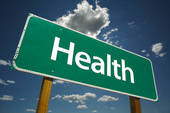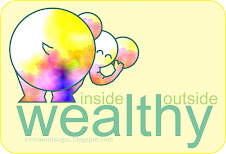 The dry scratchiness and painful swallowing that are the hallmarks of a sore throat can make you miserable. A sore throat — known medically as pharyngitis — is most often caused by a viral infection such as a cold or the flu (influenza). In many cases, a sore throat is the first sign that you're getting sick.
The dry scratchiness and painful swallowing that are the hallmarks of a sore throat can make you miserable. A sore throat — known medically as pharyngitis — is most often caused by a viral infection such as a cold or the flu (influenza). In many cases, a sore throat is the first sign that you're getting sick. Sore throats are so common they're one of the main reasons people see a doctor. But many of those office visits aren't needed. In most cases, a sore throat is caused by a virus that soon goes away on its own. A sore throat is rarely caused by a bacterial infection that requires medical care or treatment with antibiotics. Until you're feeling better, over-the-counter medications and home treatments can help ease your symptoms.
Sore throat symptoms include:
- Pain when swallowing, breathing or talking
Most sore throats are caused by viruses — the same germs that cause colds and flu (influenza). Less often, sore throats are due to bacterial infections. Viruses and bacteria both enter your body through your mouth or nose — either because you breathe in particles that are released into the air when someone coughs or sneezes, or because you have contact with an infected person or use shared objects such as utensils, towels, toys, doorknobs or a telephone. Because the germs that cause sore throats are contagious, they can spread easily wherever large numbers of people congregate, such as schools, child care centers and offices.
Most sore throats go away without treatment, often within a week or so. That's a good thing, because no medical therapy exists for sore throats caused by viral infections. But increasing your fluid intake and getting extra sleep can help speed your recovery.
When you're sick, choose fluids such as water, soups and broths — not sodas or drinks that contain caffeine, which can dehydrate you further. If you find it extremely painful to swallow, try sipping warm broth through a straw or sucking on ice chips. You may also find that gelatin (such as Jell-O) is easy to swallow.
Until your sore throat has run its course, try these tips:
1. Increase your fluid intake. Fluids such as water, juice, tea and warm soup help replace fluids lost during mucus production or fever. Avoid alcohol and caffeine, which can cause dehydration.
Gargle with warm salt water. Mix 1/2 teaspoon of salt in a full glass of warm water, gargle, and then spit the water out. This will soothe your throat and clear it of mucus.
2. Use honey and lemon. Stir honey and lemon to taste into a glass of very hot water, allowing it to cool to room temperature before you or your children sip it. The honey coats and soothes your throat, and the lemon helps cut mucus. This time-tested recipe may relieve most of your pain — if only temporarily.
3. Suck on a throat lozenge or hard candy. This isn't necessarily soothing in itself, but it does stimulate saliva production, which bathes and cleanses your throat.
4. Humidify the air. Adding moisture to the air prevents your mucous membranes from drying out. This can reduce irritation and make it easier to sleep. Be sure to change the water in a room humidifier daily and clean the unit at least once every three days to help prevent the growth of harmful molds and bacteria.
5. Avoid smoke and other air pollutants. Smoke irritates a sore throat. At least while you're sick, stop smoking and avoid all fumes from household cleaners and paint. And don't expose children to secondhand smoke.
6. Rest your voice. If your sore throat has affected your voice box (larynx), talking may lead to more irritation and temporary loss of your voice (laryngitis).
7. Avoid infecting others. If you're not well, take a few days off to avoid spreading your germs to others. Cover your mouth when you cough or sneeze.
The best way to prevent illness is also one of the simplest: frequent, thorough hand washing. Alcohol-based hand sanitizers are an excellent alternative to hand washing, particularly when soap and water aren't available. However, it's not necessary to use antibacterial soaps. With proper hand washing, standard soap will kill germs just as well.
(Source:www.mayoclinic.com)













